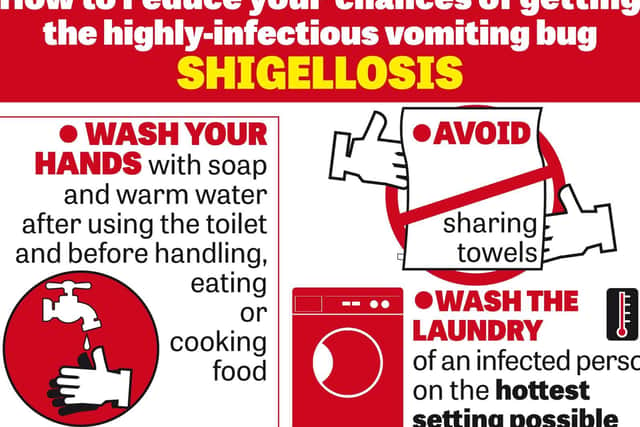Warning to parents over highly infectious bug sweeping UK schools


Here is everything you need to know about the bug.
What is shigellosis?
Shigellosis is a highly contagious infection caused by a group of bacteria called Shigella, which is spread through contaminated food or water.


Anyone can catch the infection, however it is most common among children and is most easily spread in nurseries and schools.
What are the symptoms?
Advertisement
Hide AdAdvertisement
Hide AdSymptoms include bouts of watery diarrhoea , abdominal cramps, nausea, vomiting and a high temperature. Blood or mucus may also be present in their stool.
The infection may appear as much as a week after contact, but symptoms usually begin within 3 days after coming into contact with the infection.


How to treat shigellosis?
NHS Choices says shigellosis clears up by itself within a week, with no treatment needed.
Make sure you drink plenty of fluids to avoid dehydration and over-the-counter painkillers such as paracetamol can help relieve pain and a fever.
Advertisement
Hide AdAdvertisement
Hide AdHowever, in severe cases it may be necessary to see your GP who may prescribe a short course of antibiotics, or treatment may be necessary in hospital.
How to reduce your chances of getting shigellosis?
You can reduce your risk of getting by following this advice:
- Wash your hands with soap and warm water after using the toilet and before handling, eating or cooking food
- Avoid sharing towels
- Wash the laundry of an infected person on the hottest setting possible